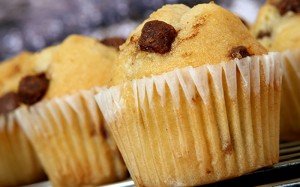Does the insulin index make us fat?
 What we need to keep in mind to avoid gaining weight? Many say we need to keep insulin at bay. If we have to lose weight we must avoid that insulin, a hormone secreted by the pancreas, grows in response to the food we eat, because this will mean that it will turn it into fat to defend us from an excess of nutrients: in particular, but not limited to, a excess blood sugar. While by now everyone has learned to talk about the glycemic index, a characteristic in which foods that contain carbohydrates raise the blood sugar in the blood, there are few that focus on the insulin index of foods. Insulin is produced not only when we eat carbohydrates, but also when we eat proteins, and to a lesser extent, fats. There is a but: the fact that insulin converts certain nutrients into fat does not mean that it makes you fat.
What we need to keep in mind to avoid gaining weight? Many say we need to keep insulin at bay. If we have to lose weight we must avoid that insulin, a hormone secreted by the pancreas, grows in response to the food we eat, because this will mean that it will turn it into fat to defend us from an excess of nutrients: in particular, but not limited to, a excess blood sugar. While by now everyone has learned to talk about the glycemic index, a characteristic in which foods that contain carbohydrates raise the blood sugar in the blood, there are few that focus on the insulin index of foods. Insulin is produced not only when we eat carbohydrates, but also when we eat proteins, and to a lesser extent, fats. There is a but: the fact that insulin converts certain nutrients into fat does not mean that it makes you fat.
In short, let’s understand you and I: insulin works strangely , and only in theory is it responsible for our excess fat. In theory it would be her, more than other things, to make us fat, because transforming the foods we eat into reserve fat is her way of defending us from the foods themselves, when we do not dispose of them.
In practice it doesn’t work like that. It is not all about insulin and insulin should certainly not be demonized. We also get fat when we fast for too long, which is when we have a low level of insulin. Insulin increases our sense of satiety, so a good insulin response in a balanced meal allows us to eat less. Furthermore, let’s say that it is this hormone that makes us fat, insulin does not depend only on nutrition:one study writes that optimistically the insulin response is influenced for thirty percent by what we eat, if we consider the insulin response to all three macronutrients (carbohydrates, proteins and fats to a very small extent). The remaining 70 percent have unknown factors. This means that there are actually people who get fat more easily and people who get fat less easily for the same foods and with the same habits. Or that insulin has nothing to do with it.
This also means that the phrases: CARBOHYDRATES GREASE SUGARS GREASE TOO MANY CALORIES GREASE ANIMAL PROTEINS GREASE DAIRY PRODUCTS They are not true for everyone.
But let’s go back to that thirty percent insulin response caused by food. If we are among those who believe that insulin makes you fat, how can we make sure that what we eat does not lead to an elevated insulin response? Foods that increase insulin are:
– high glycemic index
foods – high protein foods of animal type, starting with milk and dairy products, low-fat cheeses, red meat, ending with fish, white meat and eggs.
The foods that lower insulin, reducing the glycemic load of the meal are:
– fibers contained in fruits, vegetables, whole grains
– vegetable proteins from legumes, nuts and seeds; products from vegetable proteins such as tofu, tempeh (very digestible)
– fats
What can we do to act on that thirty percent and avoid gaining weight (as long as insulin really makes us fat)?
– we do not eat large quantities of meat and dairy products
– we do not drink too much milk in the morning
– we do not eat too many proteins together, especially meat and dairy products together, same thing for cured meats
– if we play sports, we avoid whey
– we avoid South Indige foods glycemic in normal or large quantities (it is clear that a tablespoon of corn does not raise anything, just the same a teaspoon of sugar)
– we eat meat, fatty cheeses and other animal proteins accompanied by large quantities of vegetables, and a dressing based on extra virgin olive oil , but also raw butter or coconut oil, avocado, etc.
– we eat wholemeal, again accompanying carbohydrates with vegetables and fats
– we supplement our protein quota with vegetable proteins: legumes, soy products
– we choose sugar-free vegetable milk for breakfast
– although kefir and yogurt still give a similar insulin response to that of dairy products, the fermentation of foods reduces the insulin response.





























+ There are no comments
Add yours